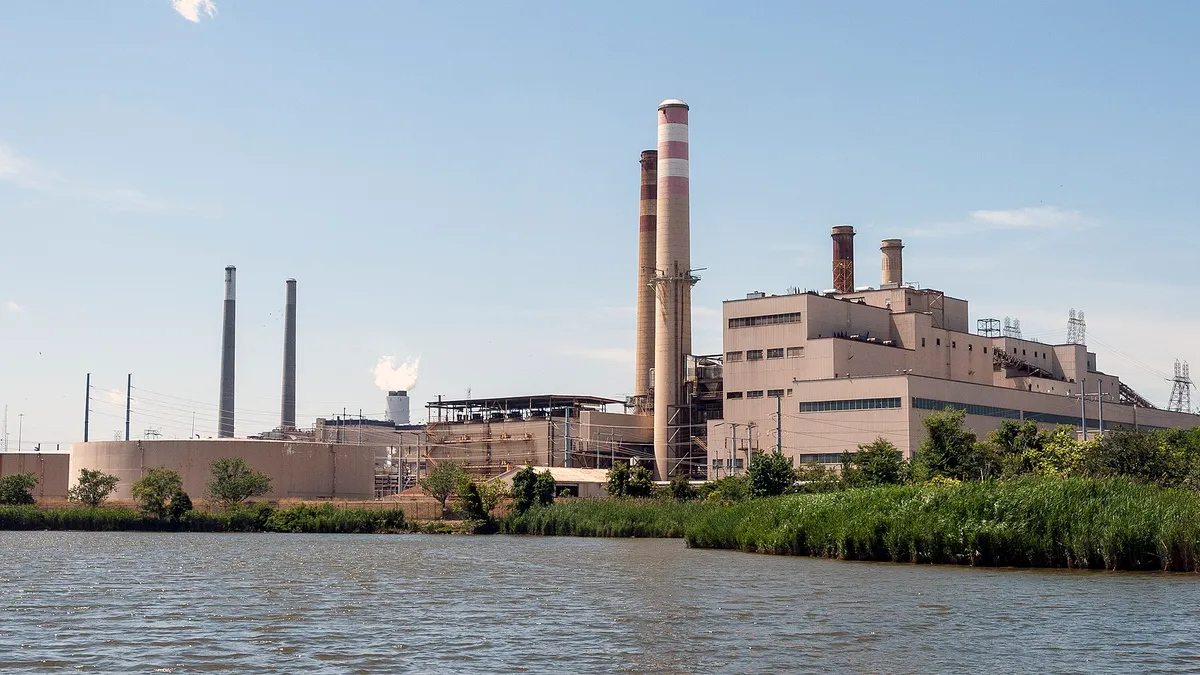Dive Brief:
- East Kentucky Power Cooperative and Kentucky’s attorney general are challenging the PJM Interconnection’s plan to make utilities and other load-serving entities across its footprint pay costs related to power plants that run under U.S. Department of Energy emergency orders.
- Utilities that aren’t responsible for the resource adequacy concerns driving the DOE’s emergency orders under the Federal Power Act’s section 202(c) should not have to pay for those costs, EKPC and the attorney general said in a joint protest filed on Monday at the Federal Energy Regulatory Commission.
- “LSEs who actively manage the resource adequacy needs of the load they are obligated to serve should not be penalized by being forced to pay socialized costs that are driven by the other LSEs’ lack of active resource management,” EKPC and the attorney general said.
Dive Insight:
In PJM, DOE has issued orders directing Constellation Energy to operate two 380-MW gas- and oil-fired units at its Eddystone power plant near Philadelphia past their planned retirement date. On Friday, DOE issued an emergency order at PJM’s request to allow a nearly 400-MW oil-fired unit near Baltimore to run beyond its operating limits. Talen Energy owns the unit, which is H.A. Wagner Generating Station Unit 4.
FERC in mid-August approved PJM’s regional cost allocation plan for the Eddystone power plant. In the decision, the agency rejected EKPC’s arguments in that case that the Eddystone costs shouldn’t be allocated across PJM’s footprint.
However, earlier this month, PJM returned to FERC, asking the agency to approve regional cost allocation for future DOE section 202(c) orders. The proposal would apply if two conditions are met: the DOE order directs a resource to maintain operations for resource adequacy purposes for the PJM region and isn’t limited to issues in a specific “locational deliverability area” and the power plant’s owner and PJM agree to a “deactivation avoidable cost credit”-based compensation rate.
EKPC, which supplies its own capacity, and Kentucky’s attorney general said that proposal fails to follow FERC’s cost-causation principle that “all approved rates reflect to some degree the costs actually caused by the customer who must pay them.”
The PJM’s capacity auction held in July 2024 cleared more capacity than needed to satisfy the grid operator’s target capacity reserve margin, showing that there isn’t a regional resource adequacy problem, according to EKPC and the attorney general.
“If the capacity auction for the PJM region shows excess capacity, then the entirety of the region is not facing a shortfall and consequently there is no basis to allocate to the entirety of the region the costs of additional resources ordered to be available under section 202(c),” they said in the filing.
Further, the evidence the DOE used to justify its second emergency order for the Eddystone units — that PJM called on the units during heat waves in June and July — fails to show there is a regional issue, according to the protest.
“Not only was PJM not short (resource deficient), but PJM had sufficient resources to be able to continue to export power to neighboring regions during its highest peak load since 2011,” EKPC and the attorney general said.
The Natural Resources Defense Council and other public interest groups last month asked the D.C. Circuit Court of Appeals to overturn the DOE’s initial Eddystone order. Also, Michigan’s attorney general and groups led by the Sierra Club and Earthjustice have asked the court to overturn the DOE’s order directing Consumers Energy to continue operating the Campbell power plant in Michigan past its retirement date.
The groups contend DOE has failed to show there is an energy emergency that would justify its orders.















